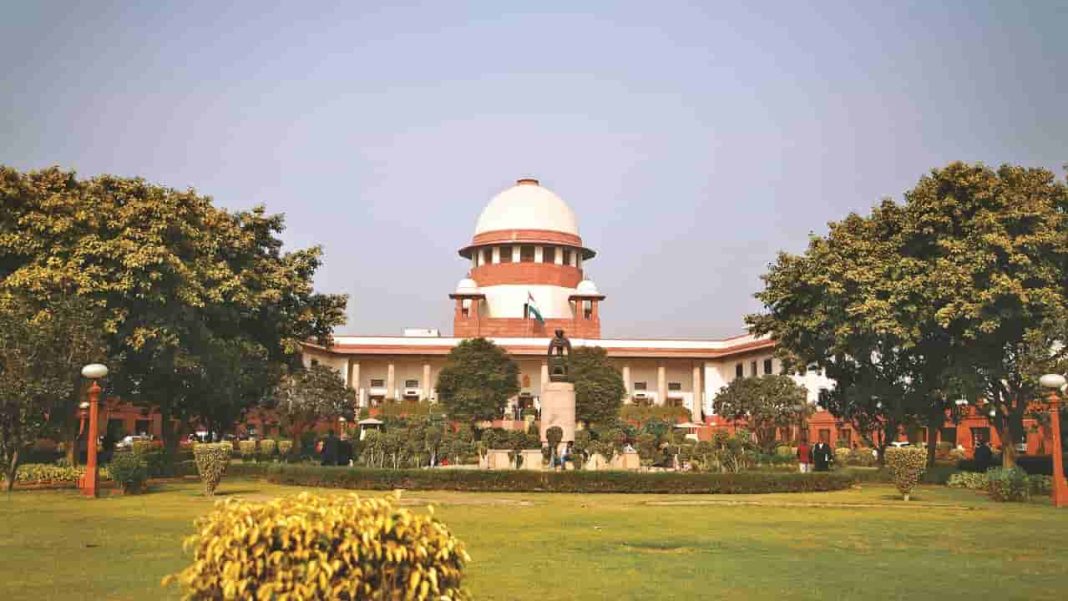The Supreme Court on Wednesday heard arguments in the case related to the dispute between the Central government and the Delhi government regarding the administrative control over transfers and postings of civil servants in the national capital.
The matter was heard by the five-Judge Constitution Bench of Chief Justice of India (CJI) D.Y. Chandrachud, Justice M.R. Shah, Justice Krishna Murari, Justice Hima Kohli and Justice P.S. Narasimha.
While the four Judges agreed to the Delhi High Court verdict, which had observed last month that the Lieutenant Governor was the competent authority for managing services in the national capital, the CJI gave a dissenting verdict.
As per the CJI, the executive head of Delhi Government was the Chief Minister and not the Lieutenant Governor. However, he stated that Delhi’s status was different from that of other Union Territories, as the Parliament has passed provisions by law for departure from Article 239(1), which made the LG an executive head in a Union Territory.
He said there was a difference between a Union Territory and a Union Territory with a Legislature. In the former one, the Union had all the control, but there was a representative local government for the people in case of a UT with Legislature.
The institution in a democracy was impacted by the statesmanship, which depended on those who were in the position of decision-making.
Justice Chandrachud emphasised that it would be an error to understand democracy as the rule of majority or a political system. He said democracy was a basic structure, which could not be infringed, as held in the Kihoto Hollohan vs Zachillhu case.
The enactment of Article 239AA was done by creating an object of a democratic form of government.
In a Union Territory, the power vested with the Parliament to specify the functions of Legislature of UT. The direct election rule mentioned in Article 239AA signified the participatory form of government, added the CJI.
He said a Union Territory did not have a Legislature like the state, which had exclusive power over the state list. The Government of UT can legislate on matters of State list with certain exceptions being laid down by the Parliament.
Justice Chandrachud stated that the aid and advice principle was only applicable where the Legislature had the power to legislate and not on matters on which the LG had exclusive power or exercised his discretion.
He said a representative form of government should be the executive head. It was held that the LG’s power to act independently violated the provision of representative government (the core of 239AA).
Further, each and every matter should not be referred to the Union because then the Legislature will be of no use as the Central Government will be the only one acting, noted the CJI.
He said the difference of opinion should be discussed and cleared prior to the reference.
The Legislature has been given the power and it should not be misused. The balance of powers has to be maintained to follow the principle of checks and balances. The Delhi High Court Judgment was not overruled and was still applicable, concluded the CJI.
The Delhi government had challenged the Delhi High Court order, which ruled that the LG has complete control on all matters with regard to the NCT of Delhi, in the Supreme Court.
Appearing for the Central government, Solicitor General Tushar Mehta contended that from 1992 till date, only seven matters were sent by the LG to the President of India on account of difference of opinion with the Delhi government.
He added that from 2017 till date, 18,000 files have come to the LG from the Delhi government and all of them have been cleared.
Representing the Delhi government, Senior Advocate Abhishek Manu Singhvi contended that there was no separate Act on services in the national capital. However, the power concerning transfers or postings of officers/ civil servants must remain with the elected government which was the Delhi government, he added.
As per the Senior Counsel, since all the services were joint cadre services, it could not work like State on one side and the Centre on another.
Advocate Shadan Farasat, also appearing for the Delhi government, said that the Union government need not be concerned with the Delhi government’s day-to-day functioning.
SG Mehta then said that all national capitals had a unique position in law, but here a perception was being created.
He said that a perception was being created that the LG was supreme and had allegiance elsewhere. However, this was not the case. This constitutional structure came to being in 1992. Even when the Centre and the Delhi government were ruled by different political parties, everything worked smoothly with political maturity. The elected body was in the driving seat, added the SG.
He said the Chief Minister of Delhi evaluated the performances of civil servants and the LG had always agreed to the government’s transfer requests.
As per SG Mehta, the national capital belonged to the nation and the national government had a role to play in accordance with a scheme. Till now, the scheme had worked perfectly till now.
In terms of power sharing, he said due to strategic location it has to be under the administration of the Union. The Constitution framers felt so as Delhi was ultimately an extension of the Union since it was a Union Territory, added the SG.
The arguments will continue tomorrow.
(Case title: Government of NCT Delhi vs Union of India)


